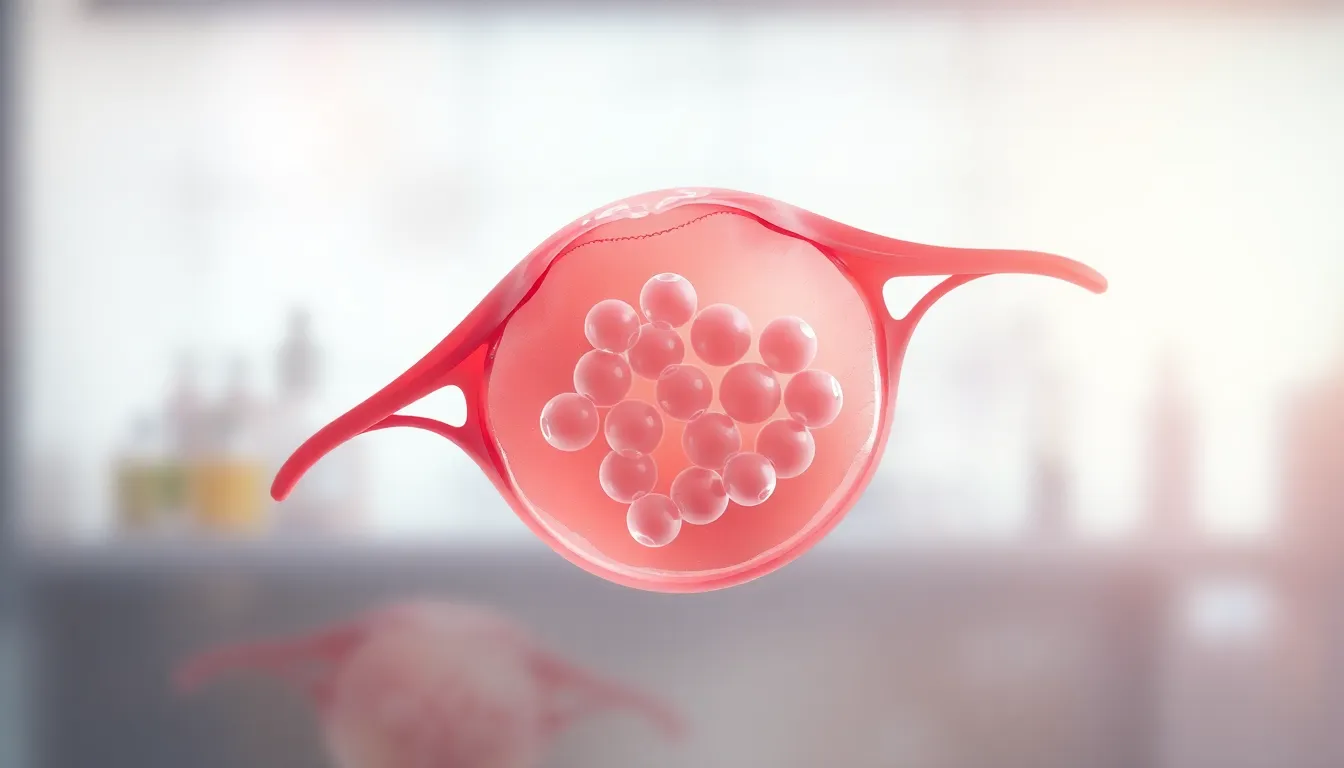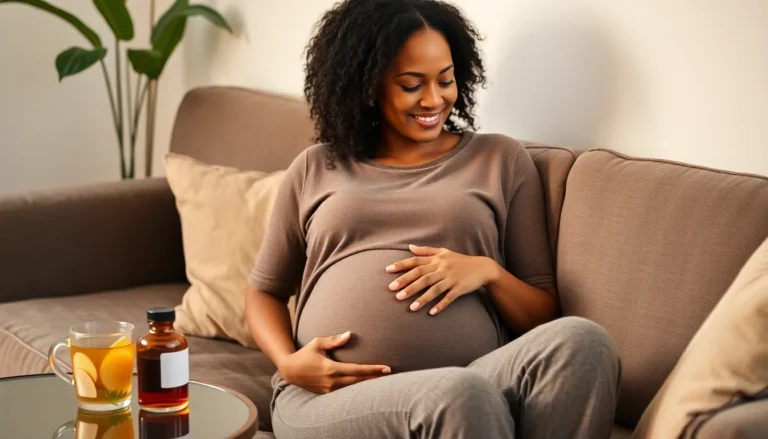Table of Contents
TogglePicture this: a woman’s ovaries are like a treasure chest, filled to the brim with precious gems. But what if those gems come with an expiration date? The question of whether women are born with all their eggs is more than just a biological curiosity; it’s a topic that stirs up plenty of myths and misconceptions.
From the moment a baby girl takes her first breath, she’s packing away a finite number of eggs, ready for the journey ahead. But how many eggs are we talking about? And what does this mean for women’s health and fertility later in life? Buckle up as we unravel the mysteries of women’s reproductive biology, and discover why understanding this topic is crucial for every woman’s journey.
Understanding Female Reproductive Biology
Women possess all their eggs at birth, a finite supply developed before they even enter the world. This concept underlines key aspects of female reproductive health and fertility.
Overview of Egg Development
Egg development begins in the fetal stage. While still in the womb, female fetuses form approximately 6 to 7 million primordial follicles by the halfway point of pregnancy. After birth, this number decreases significantly, leaving about 1 to 2 million follicles. Furthermore, a girl’s body continues to lose follicles throughout childhood, reducing the count to around 400,000 by puberty. Each menstrual cycle causes further attrition, as typically only one egg reaches maturity and is ovulated.
The Process of Oogenesis
Oogenesis refers to the entire process of egg formation. Initially, it occurs during fetal development. Primordial germ cells transform into oocytes, beginning this complex journey. After birth, oocytes remain dormant until puberty. Every cycle involves the maturation of selected oocytes. Hormonal signals initiate this process, leading to the development of a single dominant follicle. Once ready, ovulation releases the egg while the remaining follicles undergo atresia. This process highlights the intrinsic timeline and limitations of female fertility.
The Science Behind Egg Reserve

Women have a finite number of eggs present from birth. Understanding this complex process is crucial in grasping how egg count and quality change over time.
Explanation of Increased Egg Count at Birth
At birth, women possess approximately 6 to 7 million primordial follicles. These immature eggs represent the maximum count a woman will have throughout her life. After birth, this number decreases rapidly, with about 1 to 2 million follicles remaining by the time a girl reaches puberty. Ovarian reserve naturally declines as females age, reflecting the biological process of development and maturation that occurs even before birth. Factors like genetics influence the initial egg count, creating a foundation for future fertility.
Factors Affecting Egg Quality Over Time
Multiple factors influence egg quality as women age. Environmental impacts play a significant role, such as exposure to toxins and overall lifestyle choices. Age also affects chromosomal integrity within eggs, leading to increased risks of infertility or genetic conditions. Hormonal balance shifts occur throughout life, impacting ovarian function and follicle development. Conditions like polycystic ovary syndrome (PCOS) can further complicate egg quality. Each woman’s journey reflects a unique interplay of these factors, shaping her reproductive health and potential fertility outcomes.
Myths and Misconceptions
Understanding women’s egg supply involves debunking several myths and misconceptions. Misleading information can affect perceptions surrounding women’s reproductive health.
Common Misunderstandings Regarding Egg Supply
Many believe women are born with an unlimited egg supply. In reality, women start life with approximately 6 to 7 million primordial follicles, which drastically decreases after birth. Some may think every egg matures and is available for fertilization, yet only around 400,000 remain by puberty. Additionally, popular belief often suggests women can regenerate eggs, but this is currently not supported by scientific evidence. Awareness of these misconceptions allows women to make informed decisions regarding their reproductive health.
The Truth About Egg Loss
Egg loss begins at birth and continues through life. The figure of 1 to 2 million follicles exists shortly after birth, but this number steadily decreases with age. With each menstrual cycle, hormonal signals cause maturation of a select few oocytes while others undergo apoptosis. Factors such as age, genetics, and lifestyle choices significantly influence the rate of egg loss. Understanding these truths can empower women to grasp their fertility timelines better, allowing for more informed family planning decisions.
Implications for Female Fertility
Understanding the implications for female fertility is crucial. Egg quantity and quality significantly influence reproductive health as women age.
Age and Its Impact on Egg Quantity
Age affects both the number and the viability of eggs. Women are born with approximately 1 to 2 million follicles, which decline to about 400,000 by puberty. This natural decrease continues as women age. By the late 30s and early 40s, the quality of remaining eggs may also deteriorate. Fertility rates drop sharply after age 35, reflecting the decline in egg reserve. This decline in quantity can lead to increased challenges in conceiving naturally. As women approach menopause, egg quantity can impact hormonal balance and overall reproductive health.
The Role of Lifestyle Choices
Lifestyle choices directly influence egg quality and reproductive health. Factors such as smoking, excessive alcohol consumption, and poor nutrition can have detrimental effects on ovarian reserve. Exercise habits also play a role; regular physical activity can enhance overall health and hormonal balance. Stress levels are another crucial aspect; high stress can affect hormonal signals that regulate ovulation. Additionally, exposure to environmental toxins may compromise egg health. Making informed lifestyle choices can help women maintain their fertility awareness and optimize their reproductive potential.
Understanding that women are born with all their eggs is crucial for grasping the complexities of reproductive health. This finite supply of eggs and the factors influencing their quality can significantly impact fertility as women age. By recognizing the realities of egg reserve and the importance of lifestyle choices, women can empower themselves to make informed decisions about their reproductive futures. Knowledge is key in navigating the journey of fertility and family planning, enabling women to approach these life stages with confidence and clarity.





